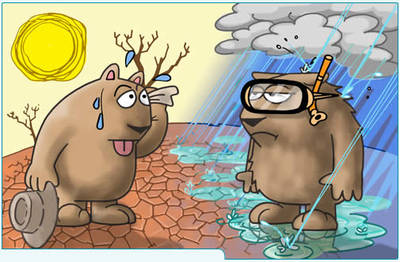 ” There is no uncertainty at all that humans have significantly altered the global atmospheric concentrations of gases we know to be critical in controlling climate…”
” There is no uncertainty at all that humans have significantly altered the global atmospheric concentrations of gases we know to be critical in controlling climate…”
– October 6, 1997 , distinguished scholar Dr. John P. Holdren at the White House
“We need President Obama to step up and say, ‘I need an economywide emissions cap,’ ” said Andrew Deutz, director of the Nature Conservancy’s international government relations program. “ ‘I need money to negotiate. I need Waxman-Markey passed by X date so I can go to Copenhagen and negotiate.’ ”
-September 22, 2009 New York Times article on recent UN Conference
What is the evidence that humans are a significant cause of the recent climate changes?
Why are we still asking this question?
Michael Mann and Lee Kump give several pieces of evidence of anthropogenic influences on climate change in their book Dire Predictions: Understanding Global Warming. First, if we look at the utilization rates of fossil-fuel burning, we can see correlations in increases of atmospheric CO2. Also, radiocarbon has been decreasing (as made evident by tree rings) so we know that the increases in atmospheric CO2 are coming from “radiocarbon-dead” sources. The most prominent “radiocarbon-dead” sources are volcanoes, deep oceans, and fossil-fuels. Other indicators of anthropogenic influence are the ratio of carbon-13 to carbon-12 (which has been decreasing, therefor ruling out natural, non-plant derived carbon sources such as volcanoes and oceans). Lasly, as used by the IPCC in their most recent findings, the use of “fingerprints” to find spatial patterns help identify underlying impacts (natural and human).
Tags: IPCC, leadership, US Energy Policy